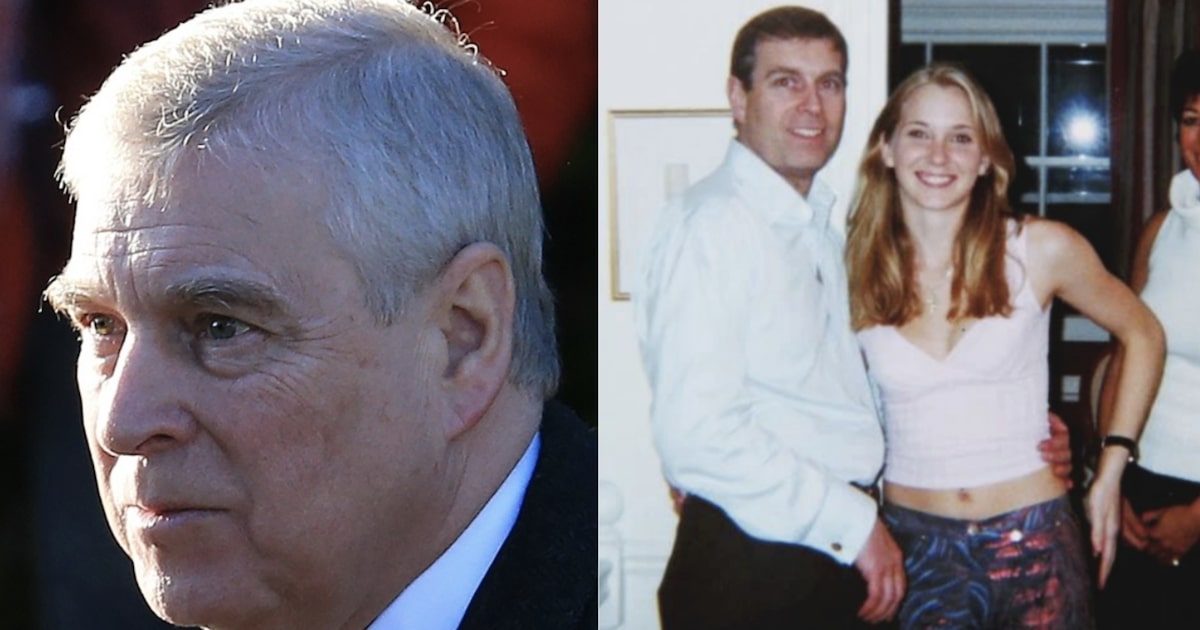
A federal judge appeared skeptical on Tuesday about arguments from Prince Andrew’s legal team to dismiss a lawsuit accusing the royal of sexually assaulting a 17-year-old girl, sharply questioning whether a 2009 settlement agreement with Jeffrey Epstein could shield him from serious allegations.
The prince’s accuser Virginia Giuffre (née Roberts) claims that the Duke of York sexually assaulted her in three locations: Epstein’s New York mansion and private island in the U.S. Virgin Islands and the London home of now-convicted sex trafficker Ghislaine Maxwell. Giuffre’s since-settled lawsuit against Maxwell helped precipitate that prosecution. Before going public, Giuffre had sued Epstein as “Jane Doe 102.”
It was under that pseudonym that Giuffre entered into a $500,000 settlement with Epstein in 2009, which contained an expansive release clause shielding “other potential defendants” from civil liability.
Senior U.S. District Judge Lewis Kaplan grilled Brettler about the language.
“What is a ‘potential defendant’ as distinguished from a ‘defendant’?” Judge Kaplan asked.
Brettler defined the phrase as “someone who could have been named as a defendant but was not.”
Appearing skeptical of that interpretation, Judge Kaplan said: “It is a word that neither you or I can find any meaning at all.”
After the judge asked whether the language would have shielded the Sultan of Brunei, Brettler responded that it would if there were such allegations against him.
The prince’s legal team pointed to Giuffre’s lawsuit against Professor Emeritus at Harvard Law School Alan Dershowitz, whom they claimed cited the release in his defense. Judge Kaplan noted that Dershowitz had another reason to invoke the agreement. The settlement agreement specifically exempted Epstein’s lawyers, and Dershowitz was one of them.
As for the expansive language of the 2009 agreement, Judge Kaplan noted: “Maybe Epstein wouldn’t agree to the half a million dollars for clearer language, language more protective of her.”
The prince’s legal team also argued that Giuffre’s lawsuit was too vague to pass muster, a claim that landed poorly in federal court.
“I’d like even a date, a month. I would even settle for a year. We don’t even have a date, a time, a location, and even an apartment,” Brettler said.
“In conclusory fashion, she doesn’t allege what this abuse was,” he added later.
Judge Kaplan replied that is “not a dog that’s going to hunt,” telling Brettler that the prince would have the opportunity to explore the allegations in greater depth over the discovery process. He added that at least one allegation in the complaint is quite specific.
“On one occasion, Prince Andrew sexually abused Plaintiff in London at Maxwell’s home,” one paragraph of the complaint against Andrew alleges. “During this encounter, Epstein, Maxwell, and Prince Andrew forced Plaintiff, a child, to have sexual intercourse with Prince Andrew against her will.”
Referring to former President Bill Clinton, Judge Kaplan quipped that there was no uncertainty over the term “intercourse” at least “since someone else was in the White House.” Judge Kaplan is a Bill Clinton appointee.
Giuffre’s attorney David Boies has argued that the settlement is “irrelevant,” characterizing it as a public relations maneuver by the prince’s legal team.
“The release does not mention Prince Andrew,” Boies told Law&Crime on Monday. “He did not even know about it. He could not have been a ‘potential defendant’ in the settled case against Jeffrey Epstein both because he was not subject to jurisdiction in Florida and because the Florida case involved federal claims to which he was not a part.”
Giuffre’s legal team expanded upon those arguments in court.
“We would concede at the outset that ‘potential defendants’ is a term that has potentially more than one interpretation,” Boies said, adding that the most reasonable interpretation involved someone subject to Florida jurisdiction.
Boies also argued that the agreement is only Epstein’s to enforce. Judge Kaplan appeared to agree, noting that the agreement was meant to be secret, creating a practical barrier for third parties knowing about it, let alone enforcing it.
[Photos: LINDSEY PARNABY/AFP via Getty Images (left); Virginia Giuffre’s lawsuit (right)]
Have a tip we should know? [email protected]